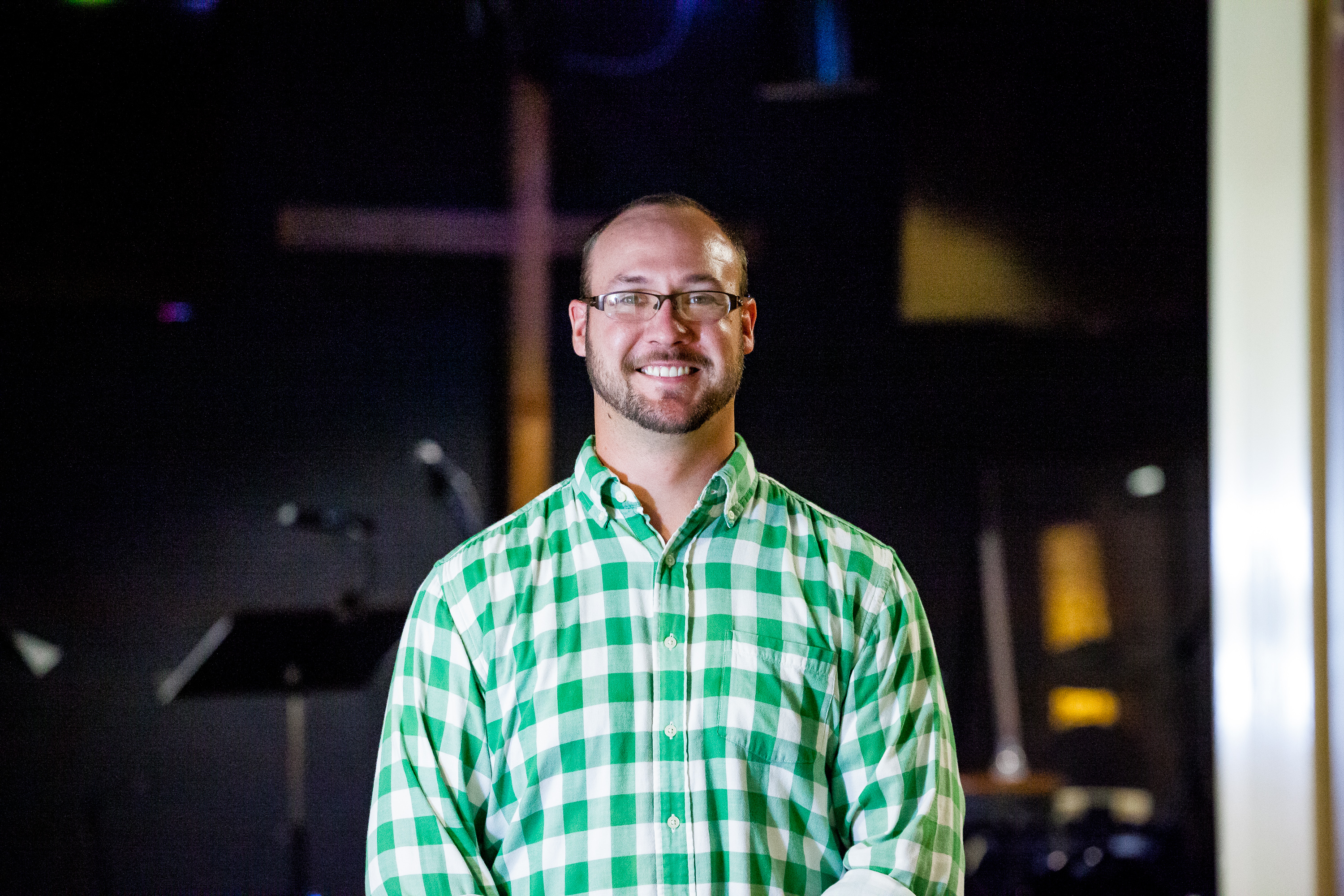What is the Gospel?
The Good News of Jesus Christ or "the gospel" is the most significant message you will ever hear, and it stands at the very center of orthodox Christianity. The gospel is the historical narrative of the triune God reconciling His creation to Himself through the life, death, resurrection, and future return of His Son, Jesus Christ. This redemption is necessary because sin and its effects broke fellowship between Creator God and His creation. Through Christ's substitutionary atonement and the power of the Spirit, however, those who believe the gospel are chosen for the Father's glory and the Church's joy.
At Heritage, we believe this local church is an assembly gathered under the lordship of Jesus Christ. Accordingly, we are committed to the primacy of Scripture and contending for the faith that was once and for all delivered to the saints (Jude 1:3). In keeping with the unity of the historic Christian church, we believe and affirm the Apostles’, Nicene, and Chalcedonian creeds as accurate representations of Scripture’s teaching. In addition to these historic statements, we are generally situated within the evangelical, Reformed and Baptist traditions.
The essential doctrines within our Statement of Belief represent what we believe to be core elements of biblical teaching. We expect all members of the Church to affirm these doctrines.
True God
We believe that there is one, and only one, living and true God, an infinite Spirit, the Maker and Supreme Ruler of heaven and earth; inexpressibly glorious in holiness, and worthy of all possible honor, confidence and love; that in the unity of the Godhead there are three persons—the Father, the Son, and the Holy Spirit; equal in every divine perfection, and executing distinct but harmonious offices in the great work of redemption.
Genesis 1:1, 26-27; | Exodus 20:2-3 | Matthew 3:16-17; 28:19 | 2 Corinthians 13:14 | 1 Peter 1:2
God the Father
We believe that God the Father, the first Person of the Trinity, orders and accomplishes all things according to His own purpose and grace. As the only absolute and omnipotent Ruler in the universe, He is sovereign in creation, providence, and redemption. His fatherhood involves both His designation within the Trinity and His relationship with mankind. As Creator He is Father to all humanity, but He is spiritual Father only to believers. He has decreed for His own glory all things that come to pass. He continually upholds, directs, and governs all creatures and events. He has graciously chosen from eternity past those whom He would have as His own. He saves from sin all who come to Him through Jesus Christ. He adopts as His own all those who come to Him, and He becomes, through adoption, Father to His own.
Genesis 3:15 | Isaiah 7:14; 9:6; 53:1ff | Matthew 1:22-23 | John 1:1-5; | Acts 2:22-26 | Romans 3:25-26 | Titus 2:13-14 | Hebrews 1:1-3; 4:14-15
God the Son - Jesus Christ
We believe that the Lord Jesus Christ is the eternal Son of God. He was not created but is the second Person of the Trinity. He became man, as foretold in the Scriptures, without ceasing to be God, having been supernaturally conceived by the Holy Spirit and born of the virgin Mary, in order that He might reveal God and redeem sinful man. We believe in His bodily resurrection from the grave; His ascension to the right hand of God where He ever lives to make intercession for believers, and His personal, physical return at the end of the age.
Genesis 3:15 | Isaiah 7:14; 9:6; 53:1ff | Matthew 1:22-23 | John 1:1-5; | Acts 2:22-26 | Romans 3:25-26 | Titus 2:13-14 | Hebrews 1:1-3; 4:14-15
God the Spirit
We believe that the Holy Spirit, the third Person of the Trinity, is a divine person equal with God the Father and God the Son and of the same nature; that He was active in the creation; that in His relation to the unbelieving world, He restrains the evil one until God's purpose is fulfilled; that He convicts of sin, of righteousness, and of judgment; that He bears witness to the truth of the Gospel in preaching and testimony; that He is the agent in the new birth; that He seals, endures, guides, teaches, witnesses, sanctifies, and helps the believer, dwelling in every true child of God.
Genesis 1:1-3 | Matthew 28:19 | John 3:5–6; 14:16–17, 26; 16:8–11 | Acts 1:8; 11:15–16 | Romans 8:14–17, 26–27 | 2 Corinthians 3:17 | Ephesians 1:13–14
Scripture
We believe that the Scriptures, the sixty-six books of the Old and New Testaments, are the inspired Word of God and are without error in their original writings. We believe in the verbal, plenary (each and every word) inspiration of the Bible as the product of Spirit-controlled men; and therefore, its truth is without any admixture of error. We believe the Bible to be the true center of Christian union and the supreme standard by which all human conduct, creeds, and opinions shall be tried. It is our privilege to seek to understand God’s message and apply it responsibly to our lives as well as to share it in relevant ways with others
Psalm 119:105, 160 | 2 Timothy 3:16 | 2 Peter 1:20-21
Humanity
We believe that humanity was created in the image and likeness of God, in holiness, under the law of his Maker; but by voluntary transgression fell from his sinless and joyful state; in consequence of which all mankind are now sinners, not by constraint but choice; being by nature utterly void of that holiness required by the law of God, positively inclined to evil; and, therefore under just condemnation to eternal ruin without defense or excuse.
Genesis 1:26-27; 3:1-24 | Romans 1:18-32; 3:10-19; 5:10-19
Salvation
We believe that the salvation of sinners is wholly of grace; through the mediatorial offices of the Son of God; who by the appointment of the Father, freely took upon Him our nature, yet without sin; honored the divine law by His personal obedience, and by His death made a full and vicarious atonement for our sins; that having risen from the dead, He is now enthroned in heaven; and uniting in His wonderful Person the tenderest sympathies with divine perfections, He is every way qualified to be a suitable, compassionate and all-sufficient Savior. This means the message of salvation through Jesus is the focal point of Christian teaching and mission.
John 3:3-7 | Acts 16:30-33 | Romans 3:21-31; 6:23 | 2 Corinthians 5:17 | Ephesians 1:7; 2:1, 5, 8-10 | Hebrews 2:14–16 | 1 Peter 1:18–21; 3:18 | 1 John 4:10; 5:1
The Church
We believe that the true church is a New Testament organism, established by Jesus Christ who is its sole Head, revealed, empowered and perpetuated by the Holy Spirit. The Church is His "body" for service and His "bride" for glory. Each local church is a visible extension of the body of Christ in a given place.
As Baptists we believe that a local church is a congregation of baptized believers, associated by covenant in the faith and fellowship of the Gospel; observing the ordinances of Christ; governed by His laws; and exercising the gifts, rights and privileges invested in them by His Word; that its officers are pastors/elders and deacons, whose qualifications, claims, and duties are clearly defined in the Scriptures. We hold that local churches have the absolute right of self-government.
Matthew 16:18; 18:15–17 | Acts 1:8; 2:41–42; 15:13–18 | 1 Corinthians 12:12–13 | Ephesians 1:22–23; 3:6, 10–12; 4:11–16; 5:23–24 | 1 Timothy 3:1–13 | Titus 1:5–9 | 1 Peter 5:1–5
About Civil Government
We believe that civil government is of divine appointment, for the interests and good order of human society; and that magistrates are to be prayed for, conscientiously honored, and obeyed; except only in things opposed to the will of our Lord Jesus Christ as set forth in Scripture, who is the only Lord of the conscience, and the Prince of the kings of the earth. Although we recognize the limits of civil government in bringing about eternal change, we affirm involvement in government as a way to be used by the Lord to impact the souls of men and the culture in which we live.
2 Samuel 23:3–4 | Acts 5:29; 23:5 | Romans 13:1–7 | Revelation 19:16
Historic Distinctives
Within Christian history, divergent views on doctrinal issues have emerged even among true, Christian believers. This Church, recognizing its responsibility to teach the whole counsel of God, affirms the following distinctives as accurate expressions of biblical truth, and will teach only these views of the subjects in question. Members must abide under these teaching positions. In cases where different groups of Christians may hold other views, we will hold our views with charity.
Ordinances
We believe that there are two church ordinances, or observances, that were given by the Lord Jesus to the church: Baptism and the Lord’s Supper. Christian baptism is the immersion of a believer in water to show forth in a solemn emblem, our faith in the crucified, buried, risen Savior, with its effect, in our death to sin and resurrection to a new life.
We believe that the Lord's Supper is the commemoration and proclamation of His death until he comes and should be preceded always by self-examination. Whereas the elements of communion are only representative of the flesh and blood of Christ, participation in the Lord’s Supper is nevertheless an important part of fellowship with the risen Christ, who indwells every believer, and so is present, communing with His people.
Matthew 3:16; 28:19–20 | Luke 22:14–20 | John 3:23 | Acts 2:38, 41; 8:36–39; 10:47–48 | Romans 6:3–5 | 1 Corinthians 11:23–28 | Colossians 2:12
Gifts of the Spirit
We believe that God is sovereign in the bestowing of all His gifts and that the gifts are God’s provision for the edification of the saints today; that there were temporary sign gifts given during the early days of the Church to authenticate the apostles as Jesus’ representatives but were not intended to be a pattern for the present day. God gives spiritual gifts for the benefit of the local body of Christ.
Romans 12:3–8 | 1 Corinthians 12:12–31 | 2 Corinthians 12:12 | Ephesians 4:11–16 | Hebrews 2:4 | 1 Peter 4:10–11
Complementarianism
Men and women are equal in essence, dignity, and value but are distinct by divine design. As part of God’s good created order, men and women are to have different yet complementary roles and responsibilities in the home and church. Complementarianism recognizes that the gift of leadership can reside in both men and women. This leadership can be exercised within various capacities of the local church; however, the office of elder is reserved for qualified men.
Genesis 2:18–24 | 1 Timothy 3:1–13 | Titus 1:5–9






